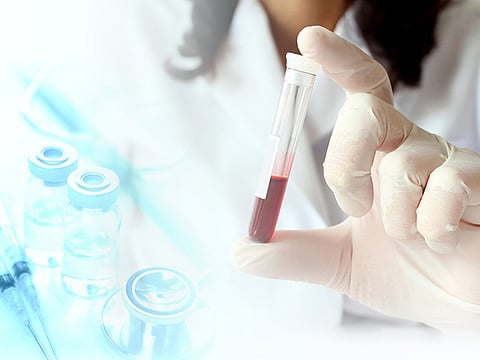Cancer screening breakthrough
A new blood test can detect eight common forms of cancer and could potentially lead to earlier detection

Early detection of cancer significantly improves chances of survival. One goal shared by many healthcare specialists is to develop a test, where people can be regularly assessed for cancer. Researchers in the UK have moved a step closer to achieving this goal, having trialled a new blood test, which detects eight of the common forms of the disease.
The team, from John Hopkins University in the UK, trialled the test on 1,005 patients and found that there was a 70 per cent accuracy level in detecting cancer. The patients already had cancer in the lung, breast, pancreas, colon, stomach, ovary and liver but their cancers had not spread.
The CancerSEEK blood test looks for eight proteins and 16 genes that tend to be released by cancerous tumors. What differentiates the blood test from previous attempts is that it examines both DNA mutations and proteins associated with cancer.
The researchers believe that by increasing the amount of genetic mutations and proteins included in the test, they will be able to detect a higher number of different types of cancer in the future.
The next phase of the research is to use the test on patients who have not been diagnosed with cancer, to establish more information about accuracy.
Sign up for the Daily Briefing
Get the latest news and updates straight to your inbox



